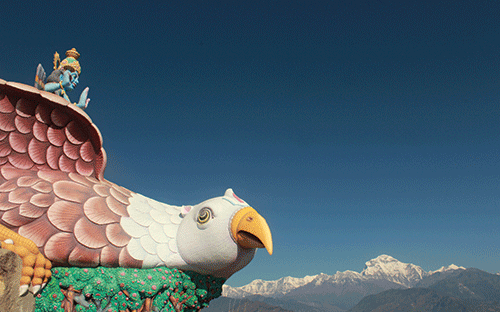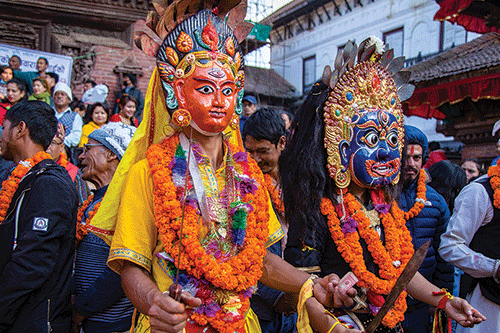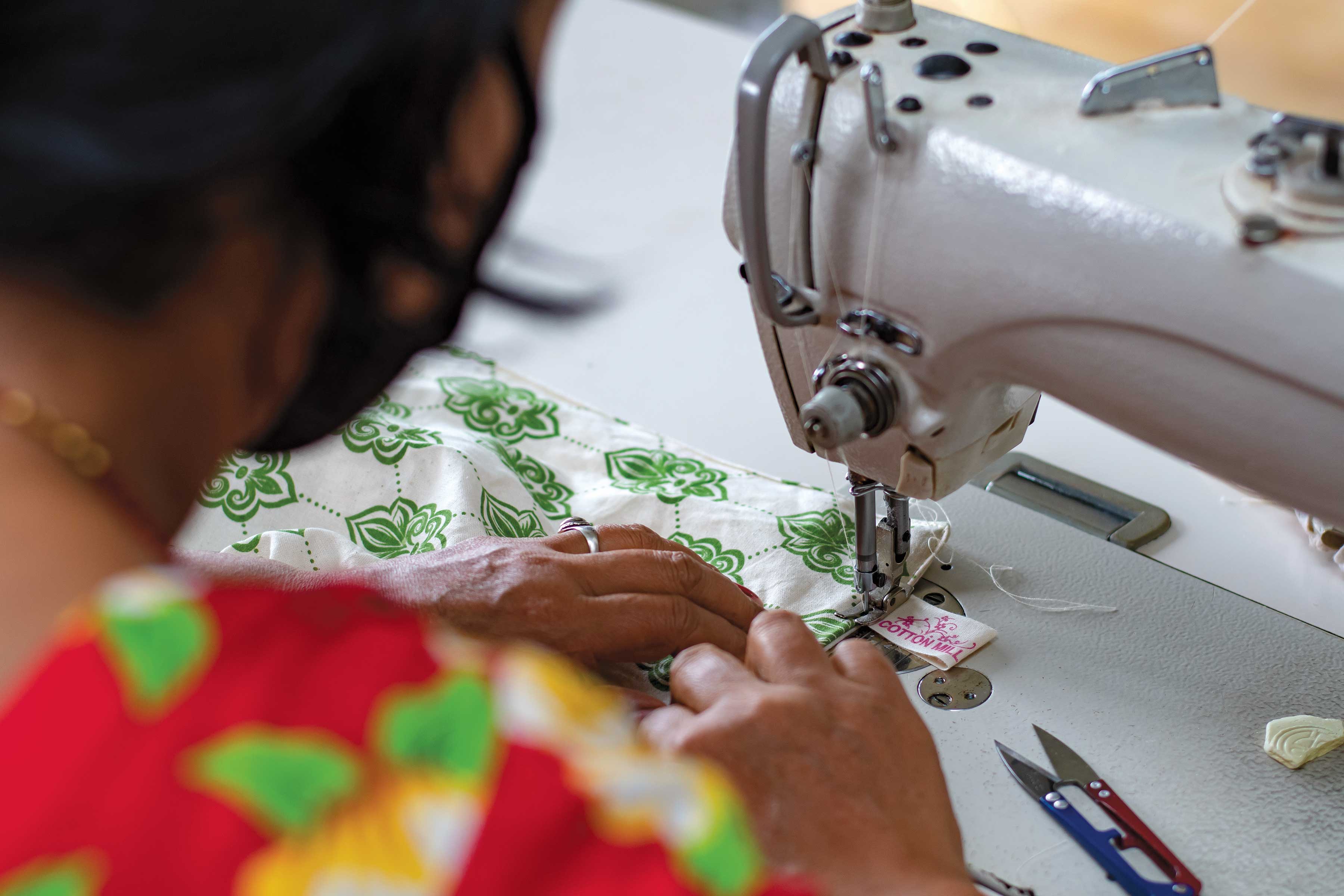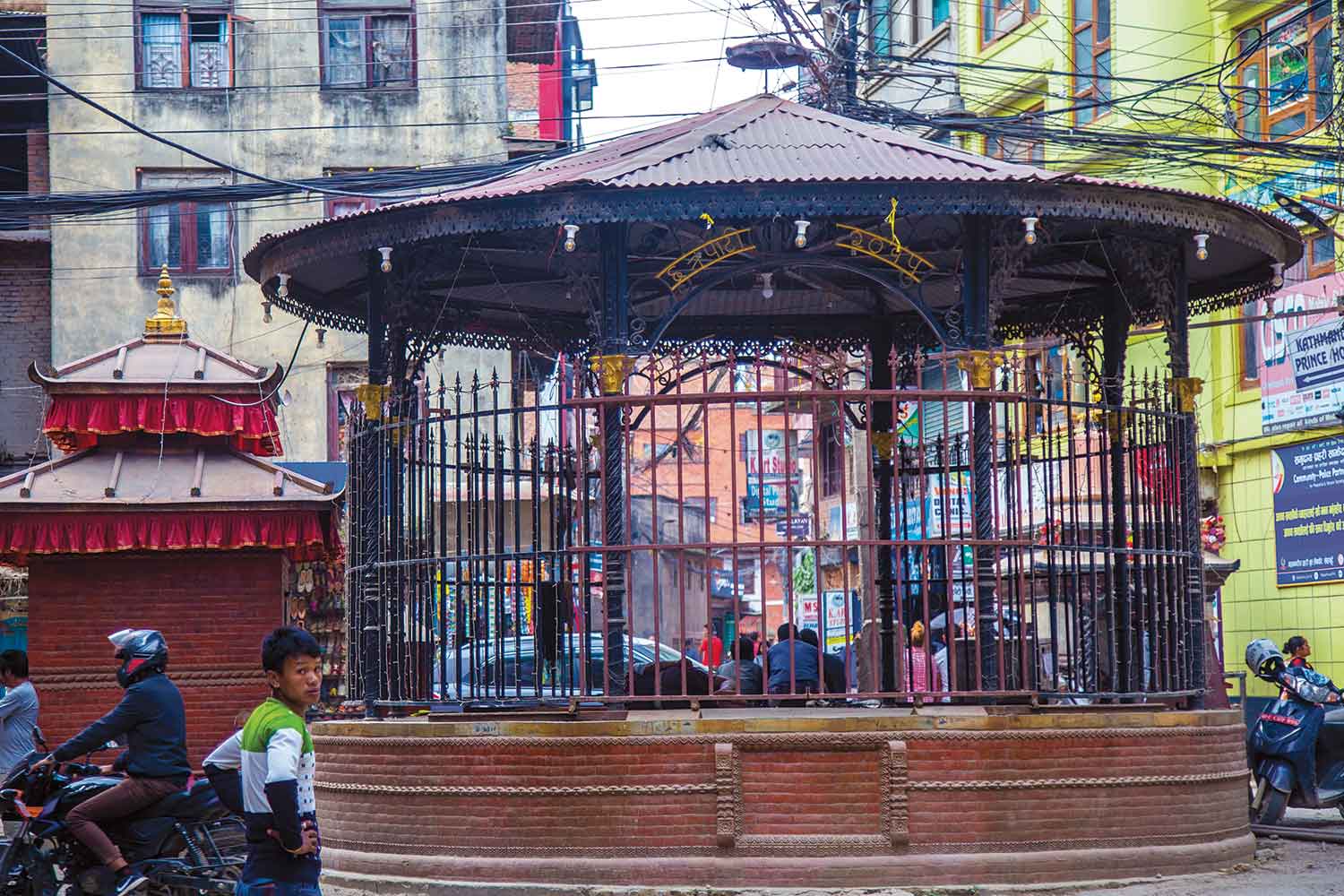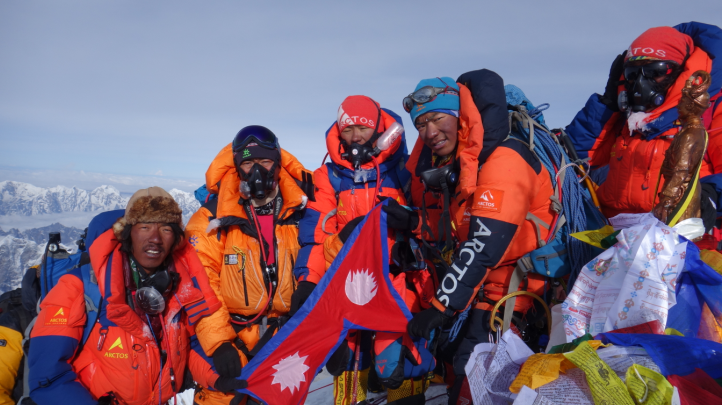
The journey starts early in the morning. I get a chance to witness the busy local life of those up at the crack of dawn: people sweeping stairs, later, young college students walking to their early tuitions, and surprisingly empty roads.
I’m sitting in a car with two Everest climbers; behind the wheel is Pemba, who has this year climbed the grand Sagarmatha twice in one week, and in the back seat, his sister Dawa Diki, who as a single mother joined her brother for the first time. We are heading towards the bus park, the potholes in the road around Boudha are unforgiving and we get a few bumps. Pemba spontaneously starts humming some Tibetan mantras and seems unfazed by the poor conditions of the Kathmandu roads. I asked him where he learnt these chants, and he responds that when he was a young child he used to follow one of his brothers around who was a Lama, and now when walking alone in the mountains he often recites them. He drops us off at the bus park, wishes us a good journey, and then we are met with the hustlers of bus stations, shouting out names of destinations to attract more passengers. We get our tickets and hang around to be met by the bus conductor, who seems to have a few unfinished words with other rivals, and only then takes us swirling around all the other buses towards ours. The seat is in front, which is highly recommended when taking long off-road journeys. More women push in next to the driver at the front, and bags are piled carelessly behind the driver’s seats where our legs meet.
We stop and start for ages before picking up speed, and the view of busy Kathmandu with its clamor and dust changes to green foliage. I ask how long the journey will take, and Dawa Diki just replies, “We will reach by evening.” I understand when a time is not given that we are going further than I have ever been, and settle for the joys of changing scenery and sound of Nepali love songs.
We are heading to Dolakha district, and the views are changing to hills of deep green forests and majestic waterfalls. We reach a small industrial village by 6:00 p.m. and start our trek the next morning, entering the Rolwaling valley. Everything looks just bigger. No wonder the Rolwalling valley is famous for recruiting among the best of Everest porters and climbers. Climbing up, to an increasing heart rate, I stop and look at the beauty around me. There is no need for fitness training, the lifestyle itself takes care of that.
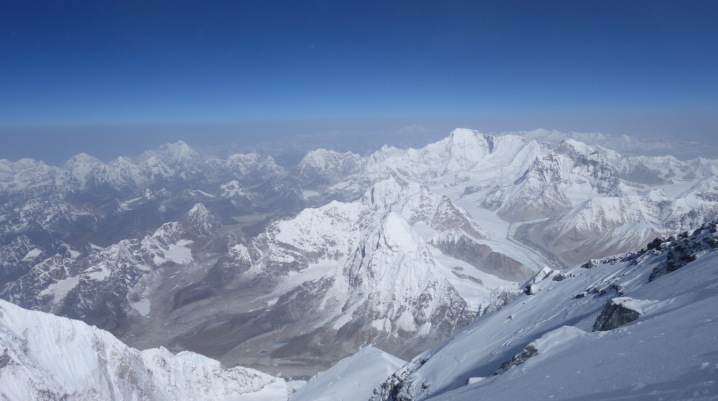
As we climb up, I learn from Dawa Diki that they have two homes, the first in the village of Naa, at 4180 m above sea level, where her mother stays during summer, and the second home in a village called Bedding (3690 m) during winter. Her mother, Kinjung Sherpa, now lives there alone. In my imagination, I wonder what it must have been like bringing up 12 children, the household rituals, and the scarcity of crops, as the summer season is very short.
Their father, Chirang Norbu Sherpa, who worked as a porter for Tenzing and Hillary's famous expedition, was the inspiration for young Pemba, and he told many stories from their journey. His father taught him everything about climbing, and the tough peaks around the village gave him a fitness level many would envy. At that time, school was not available to them there, so the older children’s education would be the mountains, valleys, and rivers. I look at Pemba, now 38, with his slim body and medium height: he holds the Guinness World Record for fastest accent, and is a seasoned, veteran climber. His nickname is Pemba Speed Sherpa, and truly this man does everything at speed, but never acts like a celebrity. I sense a kindness and humbleness—a lesson I’ve learnt later on the track, a lesson that only tough conditions teach. If you sit long enough around the mountains and deep wild rivers, values like respect and humility are taught without textbooks.
He encouraged his other siblings to join the climbing industry—two older brothers, Pemba Gyaljen and Phurba Thundu—who climbed Mt. Everest three times. Phurba Thundu passed away in the avalanche on Mount Pumari in 2006. Soon, the younger brothers joined, and Nima Gyaljen has already climbed eight times and Phurpa Tenzing 13 times. Their sixth brother, Phurba Thinley (Thulo Kancha in Nepali), who during off-season lives in Innsbruck, Austria, has climbed it three times so far.
This year, as part of the Women Empowerment Expedition 2018, Dawa Diki, their sister and my traveling companion, stood on the top of Everest for the first time in her life. When I asked her how much she had to prepare and how difficult it was for her, she replied that she did not have much time for training, as she is looking after two sons. Sadly, her husband, along with other climbers, died in the 2015 avalanche. As we continue our trek, she softly encourages me to go further, after I stop and sit and stare. I think it is this quiet strength that all the siblings share: that and the will to go further. I, in the meantime, settle my breath and irritation, and eventually decide to keep going, climbing to instructions, “It is not too far now.”
Drinking milk tea up in the lodge, the views are amazing and pain is far gone. I learned yet more about the family’s climbing records: to date, seven members of the family have summited Everest, and this year on May 23, four stood there together. Pemba has summited seven times without oxygen, and in 2008, summited twice in four days, as well as three times in 10 days in 2007. On May 21, 2004, he became the fastest person to climb Everest—8 hours and 10 minutes. Pemba also reached many other 8000 m peaks like Lhotse, Manaslu, Sishhapangma, Cho Oyu, Amadablam, and many other 7000- and 6000-meter-high mountains. This year, he summited Everest for the 18th time!
His younger brother, Phurpa Tenzing, is also a record holder, as the youngest person to summit, amongst other records. At the age of 28, he has already summited 13 times. Pemba Dorje Sherpa is proud of his family’s achievements and excited for his youngest brother, Sonam Pemba, 22, who will join in next year’s expedition, which will make it 8 members of the same family to reach the top. For all these amazing records, this family is so supportive, kind, and welcoming, and behaves in the most ordinary manner. Thanks to their work, they are able to give quality education to their children, and also their youngest sister, only eighteen. Pemba is also working on a campaign called, “We will rise”, to bring new regulations for all expeditions to deal with the increasing level of rubbish on Everest. The aim is to clean up camps 1, 2, 3, and 4, and is planned for the spring of 2019.
Just one thing: never ask Pemba how long the climb up to Simigau takes. What took me three hours took him just one!



